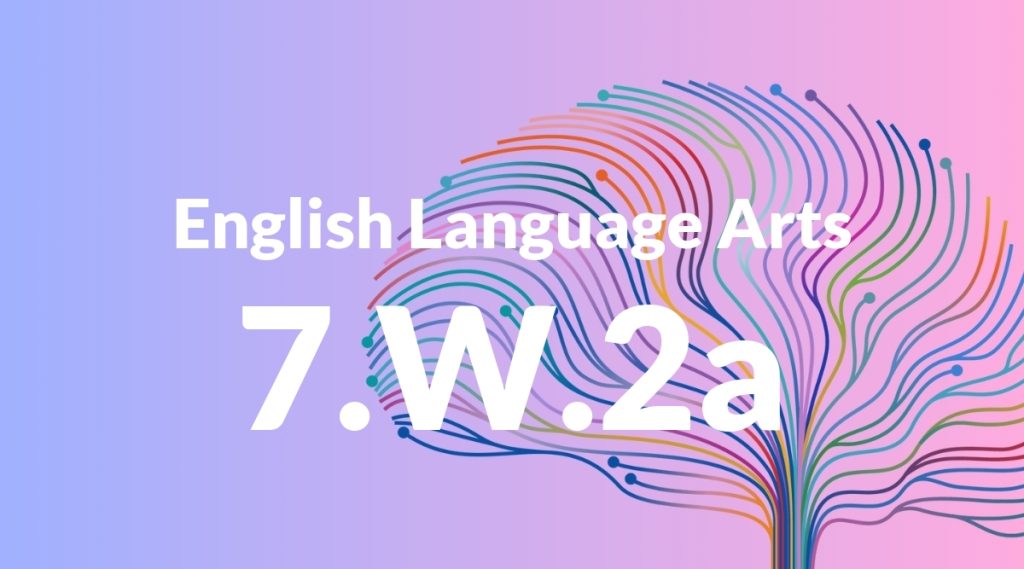Standard: 7.W.2 – Write informative/explanatory texts to examine a topic and convey ideas, concepts, and information through the selection, organization, and analysis of relevant content.
Grade level: Grade 7
Subject: English Language Arts
Domain: Writing
Teacher Overview
This standard requires students to write informative/explanatory texts that examine a topic and convey ideas, concepts, and information. It’s crucial in developing students’ ability to communicate clearly and effectively, a skill that is essential across all subjects and in real-world contexts. Students should be comfortable with basic writing skills, including sentence structure and paragraph organization, and should be able to gather and synthesize information from various sources.
Mastering this standard will prepare students for more advanced writing tasks, such as research papers and detailed reports, and will enhance their ability to communicate complex ideas effectively.
Common Misconception 1
A common misconception is that listing facts without context is sufficient. This approach lacks the depth and clarity needed for effective informative writing.
Intervention 1
Use mentor texts to show students how effective informative writing connects facts with explanations and examples. Practice exercises that focus on elaboration techniques can also help.
Common Misconception 2
Another misconception is that the organization of information is not important. Disorganized writing can confuse readers and obscure the main points.
Intervention 2
Teach students to use graphic organizers to plan their writing. This helps ensure that their information is presented in a logical and coherent manner.
Prerequisite Knowledge
Students should have a basic understanding of sentence structure, paragraph organization, and the ability to gather information from multiple sources.
Subsequent Knowledge
After mastering this standard, students will be able to write more complex and nuanced explanatory texts, including research papers and detailed reports, and will be better prepared for high school-level writing assignments.
Instructional Activities
- Use graphic organizers to plan an informative essay
- Analyze mentor texts to identify effective informative writing techniques
- Practice writing detailed explanations and examples
- Peer review sessions to provide feedback on organization and clarity
- Create a class newspaper with informative articles written by students




